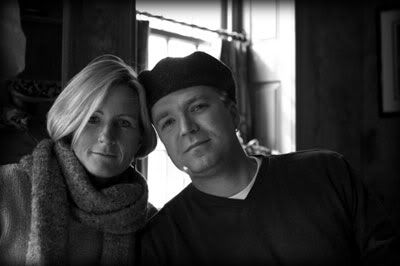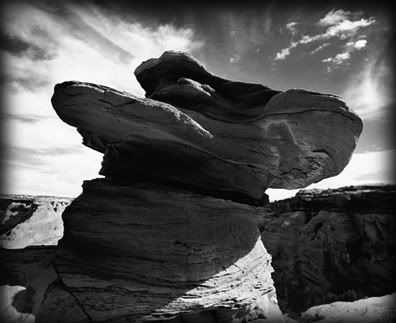Why We Lunch
Jane gets the Jimmy Legs. There is a rather well known episode of Seinfeld where Kramer is complaining that his girlfriend "has the jimmy legs". In the same episode, Mr. Costanza admits that his wife has a "jimmy arm." Apparently this phenomenon is real, only they don't call it Jimmy Legs, they call it RLS, or Restless Leg Syndrome. I kid you not.
According to the medical journals, one in ten Americans suffer from RLS, a twitching or nervous discomfort usually settling in the legs and sometimes arms and is usually associated with insomniacs and people with circulation issues. Stress is also a contributing factor.
Symptoms have been described such as "feeling like your legs are being dipped in coca-cola," or "maggots are crawling around under the skin." The result is that they constantly move their legs about. Jimmy Legs.
Jane gets jimmy legs when she's tired and needs to get to bed. That's often how she'll announce that she's tired. "I've got jimmy legs," she'll say. "I've got to go to bed."
But Jane gets a different kind jimmy in her legs. Like when she's been cooped up in the house for too long and needs to get out. I don't mean to the store or the dry cleaner, but someplace where she can enjoy an adult beverage and conversation.
This past Sunday we decided we needed to get out and "blow the stink off". We settled on Smithville, a small historic town about forty minutes north of us. It's basically just a collection of shops (mostly junk) with a few restaurants thrown in. It's someplace to go where there are always bound to be other people. At least we get to pretend we're doing something productive. The reality is, all we ever do is find a place to eat lunch and get a few drinks. Everything else is just there to make us feel like we did something more. For instance, we'll walk around and window shop, sometimes buying something, but the real purpose of the trip is to eat lunch. This is our main activity together.
Where to eat is our other big problem. There are really only so many places we can go and many of them we've either worn out or never liked in the first place. Already we're traveling farther and farther away just for the privilege of ordering beer and wine someplace new. The food is usually the same. Salads. Burgers. Turkey sandwich. Throw in the occasional crab cake, homemade fries and French onion soup, and you pretty much get the idea. It's TGI Friday's without the flare.
We settled on a place we'd never eaten before, an old historic building with two working fireplaces. Normally this would be right up our alley but I'll bet we've walked in, and then right back out, several times before because the minute you walk in you are struck by one undeniable fact: The place is full of senior citizens. The menu is your basic fare, just one notch up from bar food, in portions that allow the elderly to take something home in styrofoam. But for the first time, we came in through the wrong door and found ourselves in a wood-paneled bar with a fireplace large enough to sleep two. The room was cold, the fire seemingly having just been started, and we were the only ones in the room, but we decided to take the table next to the fire and at least have one drink. A few more logs were thrown on the fire (a rotating line of young men took turns feeding the fire), a second round of drinks were ordered and a few more people filed in. Being more or less comfortable at this point, we decided to stay for lunch.
As we sat there, full and happy and on our third round of drinks, I had to laugh. The room we were in very much resembled our own dining room, complete with our seats in front of the fireplace. We had driven close to forty miles to sit in front of the fire and drink beer, which is exactly what we would have been doing had we been home. We'd just moved locations. As Jane often says when we travel to a friend or relative's house, and she finds herself, once again in the kitchen, "Same sink, different location."
We are creatures of habit and our needs are simple. Often what we need is not something new to do, but someplace new to do it. In the summer, we can spend the day at the beach together, simply lying in the sun. Jane can do this and relax. But if we were home lying on chairs in the sun, things that needed to be done would call to her like sirens in the sea. And then she'd start calling out to me. I love the beach.
Stephen King writes in his memoir that when he was drinking heavily (he is now a recovering alcoholic) he had to pour out any unopened beers in the fridge because he knew they would be calling to him all night. That's Jane, only she's a compulsive doer. She finds it difficult to sit still.
In fact, she is constantly confounded by my ability to accomplish so little, at least by her standards. Jane likes to see progress, likes to have the fruits of her labor all around her. She loves the smell of new paint, because like the Colonel Kilgore in Apocalypse Now, it smells like victory.
I enjoy sitting. Paul Reiser in his book, "Couplehood" speaks at great length about his enjoyment of sitting. For instance, rather than moving to dislodge the channel changer he's almost definitely sitting on, he'll just deal with the discomfort. He goes on to say, "...now if you understand how affection for sitting, multiply that a couple of times and you can imagine my enthusiasm for lying down." I know what he's talking about.
But my inactivity has a purpose, however flawed in my wife's logic. I can sit in a chair on my computer all day. That's not an exaggeration. I'm talking eight, ten hours. I get up to use the facilities or to refill my coffee cup, refresh my cocktail, or put another log on the fire. But other than that, I'm content to just sit there.
So what do I do, my wife always wants to know? A multitude of things, some worth mentioning, others hardly so. To start with, the Internet is a world wide web to be sure. You can get lost in it and never return. When the mood strikes me, I write. Sometimes I search for and download music. Other times I order books, either the real thing or the downloadable kind. Other times I'm just "window shopping"?looking at things I have no intention of buying but may be fantasizing about buying. It could be anything.
I also belong to several on-line communities: two featuring writing and two featuring photography. I post stories and pictures, comment on other people's stories and pictures, and sometimes, comment on other people's comments on both mine and other people's stories and pictures. It's a full time job. I'm only really home two days a week. It's a wonder I get done as much as I do if you ask me.
Between Jane's Jimmy Legs and my penchant for "sitting and staring at that damn computer" there are days when Jane and I wouldn't see that much of each other, if it weren't for our outings. That's why lunch is so important. We don't NEED to go out to lunch, but it's like neutral ground. She doesn't feel pressured to repaint the upstairs hallway and while I always bring my journal?and often a book?we tend to look at each other and talk.
Although, when you think about it, between the driving to and fro, and the actual meal itself, it does amount to quite a lot of sitting. Which is just fine with me.



